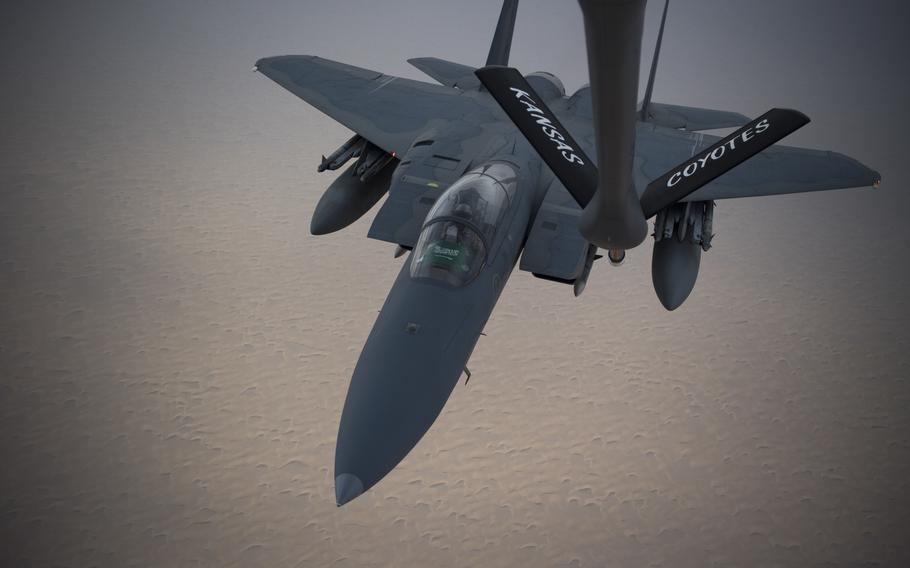
A Saudi air force F-15C Eagle approaches a U.S. Air Force KC-135 in the Central Command area of responsibility in 2019 to practice refueling. President Donald Trump signed an executive order April 9, 2025, aiming to make the sale of U.S. weapons to foreign countries easier. (Keifer Bowes/U.S. Air Force)
An executive order signed this week by President Donald Trump seeks to streamline the sale of U.S. weapons to foreign countries, offering a potential boon to the American defense industry.
The order on Wednesday directs the State and Defense departments to evaluate and propose updates to certain rules on weapons sales, including the requirements for congressional approval of foreign military sales and direct commercial sales.
“We’re unable to provide weapons systems in a reliable, effective way to key allies,” White House staff secretary Will Scharf said at an Oval Office signing ceremony. “A key driver of that is inefficiencies and inconsistencies with the process by which we approve foreign military sales.”
Trump is seeking to pick up the pace after his first term, when he often voiced frustration with Congress for denying weapons sales. Lawmakers have been known to block sales for a variety of reasons, including human rights concerns.
Late last month, the administration approved nearly $2 billion worth of drone sales to Qatar, a deal that had faced years of delays despite Qatar’s support of the U.S. during the withdrawal from Afghanistan and its help in facilitating talks with Iran and Hamas.
The U.S. had long been wary of upsetting the balance of power in the region. Saudi Arabia and the United Arab Emirates, both of which are U.S. military partners, have often had a contentious relationship over the past decade with Qatar.
In 2019, Trump bypassed lawmakers by declaring a national emergency over tensions with Iran, allowing the sale of nearly $8 billion in weapons to Saudi Arabia, the United Arab Emirates and Jordan.
The order signed Wednesday also directs government agencies to review the restrictions on weapons under the Missile Technology Control Regime, an informal international agreement that seeks to limit the proliferation of missiles.
Trump ordered the Defense and State departments to work with the commerce secretary on supplying partners with some of the most restricted weapons, like complete rocket and drone systems, referred to as Category I items.